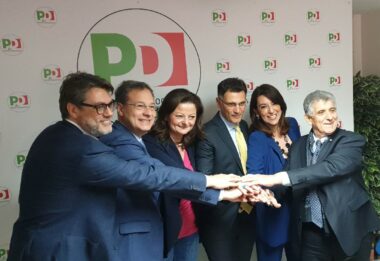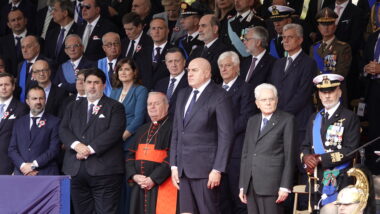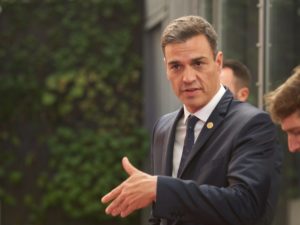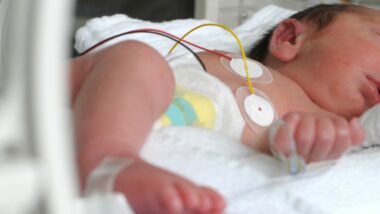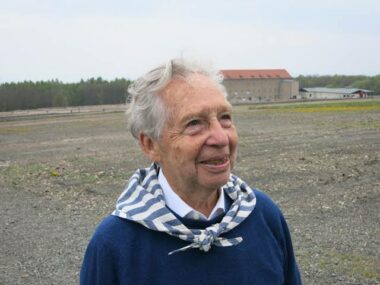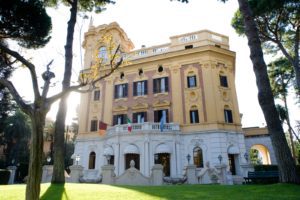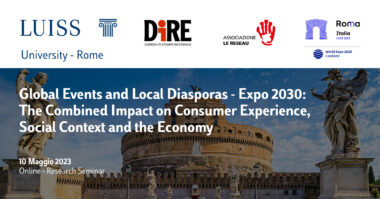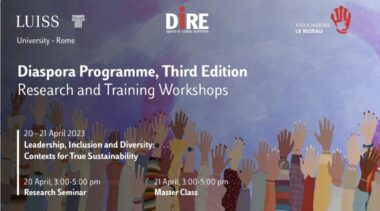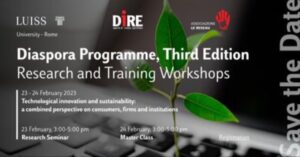Experts on the diaspora program discuss innovation as opportunity and ask for policies to overcome digital divide

ROME – It seems paradoxical, but this is the right moment to seize opportunities; because it is only now that society’s fast growing social adaptation to the pandemic has come across new technological digital horizons. But we must stress that you can only seize an opportunity if we put people first and try to get through to them by climbing over “divides” and separations. This is the theme which stood out at the fourth webinar of Luiss Diaspora Program. A deep reflection on the issue became a commitment to succeed for experts, teachers and representatives of the institutions who are currently in touch with talents and witnesses on the other side of the Mediterranean as far as Kenya and the Sahel.
Emmanuel Sawadogo, Director of Studies at the University Joseph Ki Zerbo in Ouagadougou explained where things stand: ”The pandemic has made it crystal clear that training in new technology and digital is a compulsory choice rather than a mere option, and this can shake up and transform our companies. thereby bringing about development”.
So ‘Innovation, Digitalization and Sustainability for Social and Ecological Transition’ are on the agenda, starting off with people themselves and their multiple and changeable identities . There will be debates on which goals are right and at the same feasible. “We are trying to bring enterprise to our universities with the tools at our disposal, because we mustn’t complain but instead make do with what we have got and start at the bottom”, said Sawadogo. He went on: “ There is a project with incubators that involves all branches of knowledge, even livestock and life and earth sciences. However, the focus always lies much more on digital; for example , students with web design training have been taken on by companies to carry out a total transformation in digitalization”.
Philip Thigo, , Director for Africa at the Thunderbird School of Global Management , spoke from Kenya about “ the extraordinary fast transformation”. His premise today is that it is necessary to aim at collaboration between universities and at inclusiveness.“We can be stronger and our economies will become more resilient if we learn to stand up for and reinforce fundamental rights”, pointed out Thigo. He mentioned “access” and pointed out that diasporas and communities of foreign origin should not be scattered and lost but instead should be considered as “seeds” of reciprocal knowledge from which relationships can blossom all over the world.
Another key word was” nexus”, and the words “link” and “connection” which were used together by Fabrizio Lobasso, Central Director for Sub Saharan Africa and Minister at the Ministry of Foreign Affairs and International Cooperation. According to the ambassador, the only role of telematic interconnection is that of unlocking human interconnection which is already inherent and of which parallels in our world can be drawn.
Diana Battaggia, Director in Italy of the United Nations Organization for industrial development (UNIDO), lingered over the word “nexus” as related to food, water and energy and then in connection with projects to obtain access to financial resources and technologies that involve the Sub Saharan area from Botswana to Kenya. She pointed out “ We want to encourage applications for innovation and sustainable alliances to governments, universities and in the private sector”. “Nexus” it seems will bring back that hybrid diplomacy invoked by Lobasso which is made up of institutions on one hand, and associations, volunteers and free talents, on the other hand.
Francesca Bartorilla, head of Legal Contract Management at Accenture, made it clear that the organization would support the Diaspora Program at Luiss. “In Italy there are more than 17 thousand companies like Accenture, our mission is to combine technology and human ingenuity to induce true values and speed up innovation”, she said.
Marco Francesco Mazzu’, recruiting leader and Professor of Marketing & Digital at Luiss summed it up in a nutshell. “Development of digital infrastructures is fundamental for the growth of work competences and opportunities and to cut down on everything that divides”, he said. “ We need rural areas around the cities which enhance the various types of work and various prospects of the different companies”.
So let’s go ahead with industry 4.0 , as long as we collaborate and don’t leave anyone behind. This was the point that Christian Iaione made, in his role of Director of the Master in Law & Digital Innovation and Sustainability at the Luiss. During the webinar he shared the vision of “a hybrid future” and talked about “involving” students by giving them the opportunity to talk about their experiences.So it was Benedicta Quercoo’s turn to speak: she is of Ghanaian origin, and is one of the 50 students from XLabs at Luiss. She explained: “We come from ten countries and from 20 universities and are divided into even groups which respect equality between men and women. We are working together with young Italians on projects for Sudan or the Costa Rica which are financed by both the European Union and the Luiss”. When she talked about the future , she was crystal clear: “Each one of us will be able to become what he or she wants to as long as he or she works hard at communication, development, in the legal sector or at social issues for the community”.
Le notizie del sito Dire sono utilizzabili e riproducibili, a condizione di citare espressamente la fonte Agenzia DIRE e l’indirizzo www.dire.it
